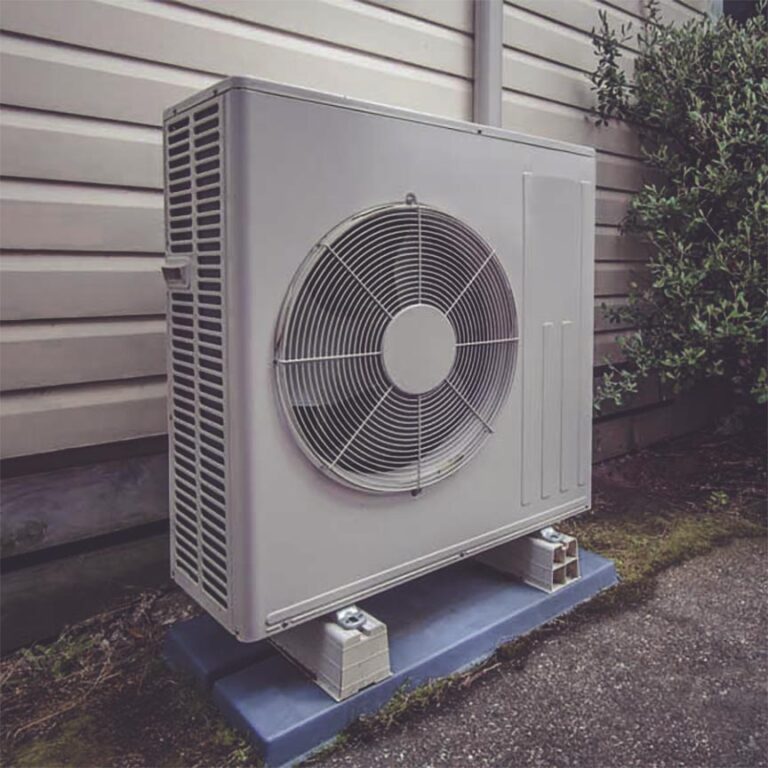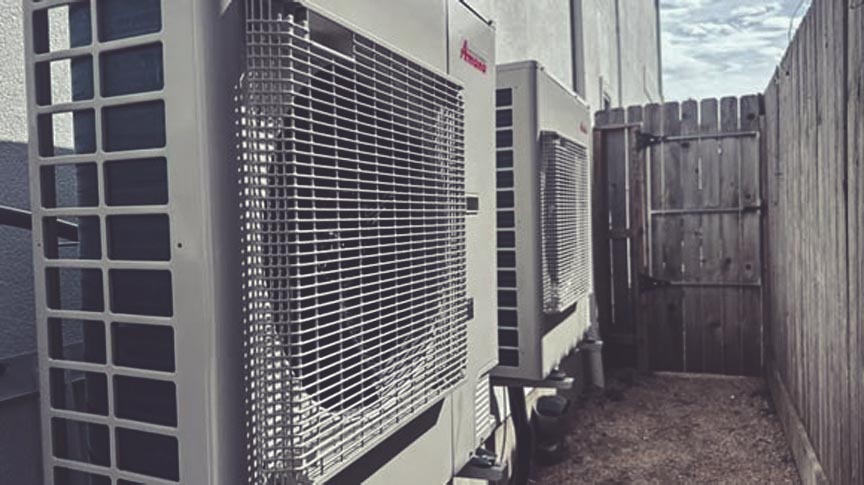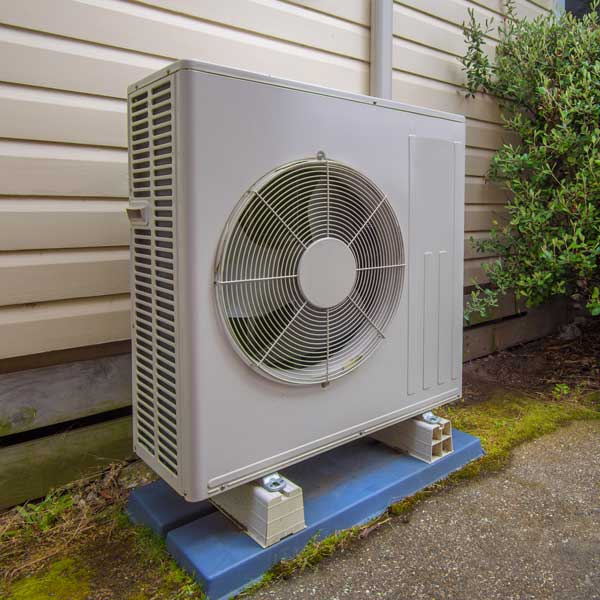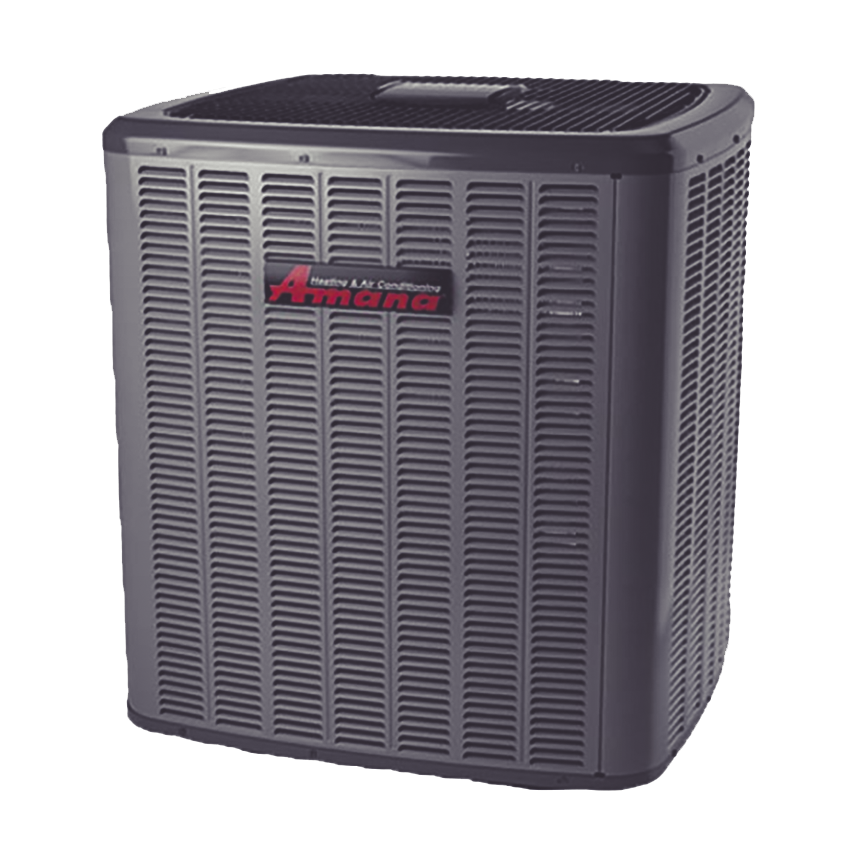At All Star A/C, Plumbing & Electrical, we provides installation, repair, and maintenance heat pump services. These systems are becoming a popular energy-efficient solution for heating and cooling in the varying Texas weather conditions.
When compared to traditional HVAC systems, heat pumps are a more energy-efficient solution. They do not generate heat, they use electricity to transfer heat, which is more energy efficient. In some cases, they can reduce your energy consumption by up to 50%.
They can heat and cool your home which reduces the need to have two separate systems. They are great for a moderate climate like the Texas Gulf Coast.
They provide a consistent temperature throughout the entire year, providing comfortable indoor temperature control. They are beneficial to Houston homeowners by dehumidifying the air and improving indoor air quality.

These systems are available in various types with a set of unique functions and features. Below are the types of serviced by All Star A/C, Plumbing & Electrical.

This is the most used type. Air source pumps transfer heat between indoor and outdoor air. They work best in climates that do not see temperatures below freezing.
This type of pump is a great solution for smaller living spaces and provides zoned heating and cooling solutions. Ductless mini-split systems have an indoor unit and an outdoor unit. This system is easy to install and works most efficiently in temperatures as low as 5 degrees Fahrenheit.
They operate on a basic concept, they transfer heat from one place to another. During summer months, they will remove the heat from the indoor air and transfer it to the outdoor air. During winter months, these systems remove heat from the outdoor air and transfer it indoors after passing through a refrigerant cycle.
There are four main parts: an evaporator, expansion valve, condenser, and compressor. The heat pump compressor circulates refrigerant between the indoor and outdoor units. The condenser will absorb heat or emit heat depending on the operating setting. The heat pump expansion valve controls the refrigerant flow, and the evaporator absorbs or emits heat depending on the mode of operation.


Although these systems may be more expensive to install than a traditional HVAC system, they make up for it with reduced operating costs and energy efficiency. The installation costs are highly dependent on the size of the area being heated or cooled, the type, and the difficulty of installation.
They are more energy efficient than a traditional HVAC system. All Star A/C, Plumbing & Electrical provides a wide range of services. If you are looking for heat pump installation, maintenance, and repair, just give us a call today at 713-842-9532 and let our technicians get the job done right the first time.
pump, heat pump, duct, air conditioning, thermostat, compressor, indoor air quality, climate, refrigerant, leak, furnace, airflow, environmentally friendly, seasonal energy efficiency ratio, air source heat pump, boiler, humidity, noise, natural gas, efficiency, air handler, heat pump repair, heat pump repairs, repair heat pump, maintenance heat pump, schedule service, heating and cooling, heat pump maintenance, greater houston, customer, carbon footprint, central heating, heat exchanger, evaporator, technician, heating system, smart thermostat, longevity, condenser, carbon, reversing valve, heating seasonal performance factor, utility, tax credit, energy, customer service, customer satisfaction, accessibility, air purifier, heating service, expert hvac services, request service, cooling and heating, hvac, heating repair, air conditioning repair, furnace repair, hvac repair, expert air, hvac services, commercial hvac, air conditioner maintenance, air conditioner repair, heater repair, inspection, heat wave, filtration, emergency service, leak detection, drain, valve, water damage, heating repairs, bellaire air conditioning, heating installation, sewer line, heating contractors, commercial plumbing, furnace installation, heating company, plumbing services, sewer line repair, heating services, roof, ultraviolet, sump pump, energy star, expert, emergency, bathroom, mold
heat pump service the woodlands tx, heat pump replacement houston tx, heat pump installation bellaire tx, heat pump installation houston tx, heat pump installation cypress tx, heat pump replacement cypress tx, heat pump service cypress tx, heat pump service houston tx, heat pump repair houston tx, heat pump repair houston, heat pump service bellaire tx, houston heat pump, companies specializing in energy efficient heat pump systems, heat pumps tomball tx, heat pump installation spring tx, reliable heat pump installation providers houston metro area, heat pump installation houston
Heat pumps are a more energy-efficient solution compared to traditional HVAC systems. They do not generate heat but instead use electricity to transfer heat, which can reduce your energy consumption by up to 50%.
This efficient heat transfer process makes heat pumps a cost-effective option for homeowners looking to reduce their energy bills and their carbon footprint.
Heat pumps provide year-round comfort by both heating and cooling your home. During the summer months, they remove heat from the indoor air and transfer it outside, while in the winter, they extract heat from the outdoor air and bring it indoors.
This dual functionality eliminates the need for separate heating and cooling systems, making heat pumps a versatile and convenient choice for your home.
Heat pumps are designed to maintain a consistent and comfortable indoor temperature throughout the year. By precisely controlling the temperature, they create a balanced and pleasant living environment, ensuring your home is comfortable no matter the outdoor weather conditions.
The advanced technology of heat pumps allows for seamless temperature regulation, keeping you and your family comfortable and content in your home.
Air source heat pumps are the most common type, using the surrounding outdoor air as the heat source or sink. These systems are designed to efficiently transfer heat between the indoor and outdoor environments, making them a popular choice for homeowners.
All Star A/C, Plumbing & Electrical specializes in the installation, repair, and maintenance of air source heat pumps, ensuring your system operates at peak efficiency.
Ductless mini-split heat pumps are a versatile option, particularly for homes without existing ductwork. These systems consist of an outdoor compressor unit and one or more indoor air handling units, allowing for customized zoning and temperature control.
All Star A/C, Plumbing & Electrical has the expertise to handle the installation and servicing of ductless mini-split heat pumps, providing a tailored solution for your home's unique needs.
Heat pumps operate on a basic concept of transferring heat from one place to another. During the summer months, they remove the heat from the indoor air and transfer it to the outdoor air. In the winter, these systems extract heat from the outdoor air and transfer it indoors after passing through a refrigerant cycle.
The key components that enable this heat transfer process include an evaporator, expansion valve, condenser, and compressor. By precisely controlling the flow of refrigerant through these components, heat pumps can efficiently heat or cool your home as needed.
The main components of a heat pump system are the evaporator, expansion valve, condenser, and compressor. The evaporator absorbs or emits heat depending on the mode of operation, while the expansion valve controls the refrigerant flow.
The compressor plays a crucial role in the heat transfer process, compressing the refrigerant to facilitate the exchange of heat between the indoor and outdoor environments. Together, these components work in harmony to provide efficient heating and cooling for your home.
The installation costs for a heat pump system can be higher than a traditional HVAC system, but they are often offset by the reduced operating costs and improved energy efficiency. The exact cost will depend on factors such as the size of the area being heated or cooled, the type of heat pump, and the complexity of the installation.
All Star A/C, Plumbing & Electrical provides transparent pricing and works closely with customers to ensure the heat pump solution is tailored to their needs and budget. Our team of experts can guide you through the process and help you make an informed decision.